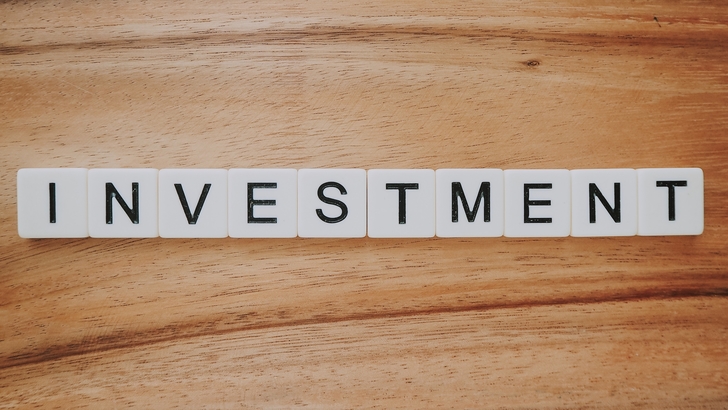
Investment God Peter Lynch’s Legacy- Invest In What You Know

If you’re familiar with the world of finance, you must have heard about Peter Lynch.
If you’re hearing that name for the first time, we’ll have you know that Peter Lynch is considered a god in the world investment and banking. He is also one of the most successful mutual fund managers in the world. From 1977 to 1990, he managed Fidelity’s Magellan Fund and averaged a return of 29% annually.
He regularly outperformed S&P 500 throughout those years, too. With all that success, you’d think he had a crystal ball stashed away in his office. But, you’d be happy to know that his approach entailed only one simple concept: Invest in what you know.

Unsplash | Investment is an excellent means of increasing your revenue
Investing in what you know entails doing business with companies whose business model and products you are well accustomed to. And no, you don’t need to have an MBA for this. Ronald Read is the biggest example of this. He was a simple janitor with no formal degrees. Believe it or not, he was worth millions of dollars by the time he reached his death bed. Read succeeded because he only invested in companies whose names he knew.
This tip goes out, especially to novice investors. It is far simpler to evaluate products and services that you know. How? Look at this way. You already have the customer’s perspective when you already know the product that you’re going to invest in.
First and most important of all, you know the product’s marketing value. Next, you gain an opinion about the product, like whether or not it adds value to your life, the frequency with which you’d purchase it, and how much you think it’s worth.

Unsplash | Smart investment can go a long way
Your familiarity with the product makes the investment more relatable, understandable, and interesting. Take a second to think about one that you’re the least interested in and imagine that you’re about to invest in it.
It could be anything: data mining, teaching, artificial intelligence, skincare, etc. You’re bound to be bored when you’re reading up on its products. You might even misunderstand or overlook important information in a haze of boredom!
Do you want that to happen to you? We think not.
Here’s how you can find companies that you should be investing in.
What are your go-to products and where do you get them?
Think about the purchases you’ve made over the last couple of months. The sales on items like toiletries, groceries, and household items has increased drastically since the lockdown started. See where we’re going with this?
You need to look for products that are resilient at a particular time. You can even look at the label on the products you get. Most of them would be made by Colgate-Palmolive, Proctor & Gamble, Johnson & Johnson, or Unilever. There’s another hint for you.
What industry do you work in?
You can use your professional expertise as a source of investment, too. If you’re a software engineer, you might want to look into investing in Microsoft or Amazon. If you’re a data mining expert, you might want to look into data mining giants like Altar or Intellias.
What are your hobbies?
Your hobbies and interests can also point you in the right direction, just like your industry does. If you love to garden, look into landscaping companies. If you’re into cars, try looking at manufacturers or retailers.

Unsplash | Take the time to research the company you are willing to invest in
In any case, even though you’re investing in familiar products, don’t skip the research. Before investing in a company or service, you have to track its performance and make a logical decision.
More in Legal Advice
-
What Is Asylum & How Does It Work?
At its core, asylum is a protection granted to foreign nationals in a country because they have suffered persecution or have...
November 26, 2023 -
6 Reasons Why Sentencing Is Any Judge’s Toughest Assignment
When you picture a judge, you might imagine a stern figure in black robes, gavel in hand, delivering verdicts with unwavering...
November 14, 2023 -
Carrie Underwood Sued for NBC Sunday Night Football’s “Game On”
It is almost ritualistic. As the weekend winds down and Sunday evening approaches, millions across America gear up for a night...
November 12, 2023 -
Why Lawyers’ Productivity Has Increased in Modern Times
Remember the old days when your image of a lawyer might have been drawn straight out of an episode of “Matlock”...
November 5, 2023 -
Paying Down Debts Using Debt Relief Tactics
Debt is like that lingering headache that never seems to go away, no matter how much aspirin you pop. But there...
October 29, 2023 -
Pro Se: Your Right to Represent Yourself WITHOUT an Attorney
The legal system is complex and so, more often than not, people hire a professional attorney to navigate the legal system....
October 21, 2023 -
The Craziest, Most Expensive Hollywood Divorces of All Time
Hollywood is the land of glitz, glamour, and romance – until it is not. Over the years, we have seen our...
October 13, 2023 -
How Was Life as a Lawyer in Ancient Rome?
The Late Roman Republic was a period chock-full of political drama, rampant corruption, and the rise and fall of powerful figures....
October 8, 2023 -
7 Critical Things to Know Before Hiring an Elder Law Attorney
Hiring an attorney can feel like a daunting task. When the need pertains to elder law, emotions run high, often making...
October 1, 2023














